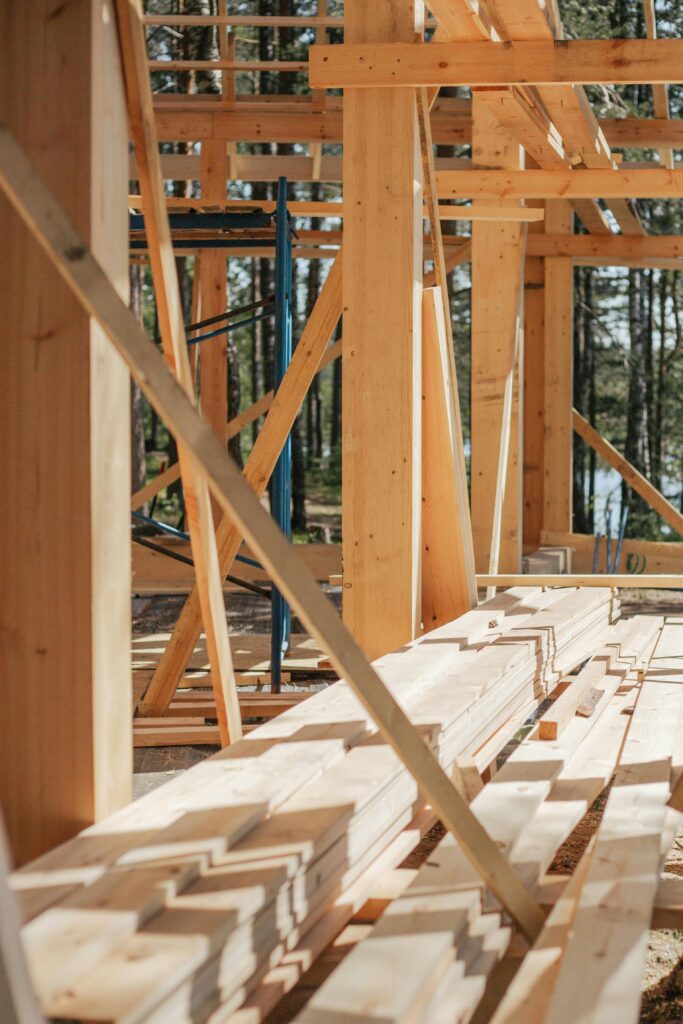As consumers become aware of the impact their choices have on the planet, the demand for ethically sourced products continues to grow. Builders and homeowners are now faced with the challenging task of finding quality materials in a way that their sourcing methods align with sustainable practices.
This shift towards ethical considerations in procurement is a necessary evolution in the way construction and home improvement industries operate. Dive into why ethical sourcing is a must for builders and homeowners.

Quality Assurance and Durability
Materials that are ethically sourced undergo rigorous quality control processes to meet higher standards than their counterparts. Sustainably sourced wood from sustainable wood suppliers like Olam Agri is harvested following practices that maintain ecological balance and superior durability. These materials tend to withstand the test of time better than those that do not adhere to ethical standards. Builders who want to reduce the frequency of repairs or replacements will see considerable savings in the future.
Ethical sourcing encourages transparency in the supply chain, allowing builders to trace the origin of their materials and make informed choices based on their integrity. Such products come with certifications that guarantee their sustainability and bolster trust in their quality.
Environmental Impact
The environmental impact of construction practices has become a focal point for industries worldwide. Ethical sourcing promotes practices that reduce harm to ecosystems. By selecting materials that are harvested from responsible sources, builders and homeowners contribute to the protection of forests, waterways, and biodiversity. Reclaimed wood decreases the carbon footprint associated with new lumber production. The commitment to using ethically sourced materials helps to lower greenhouse gas emissions as fewer resources are extracted from the earth.
Sustainable practices in sourcing prevent deforestation and soil degradation while maintaining biodiversity. When individuals and companies take these considerations into account, they pave the way for a construction industry that prioritizes environmental stewardship alongside development. The goal is to create a built environment that coexists harmoniously with nature rather than depleting it.
Social Responsibility
Ethical sourcing encompasses a strong sense of social responsibility, which applies to environmental considerations and the communities involved in producing materials. When builders choose ethically sourced products, laborers will be treated fairly and compensated justly. Many ethical suppliers maintain fair trade practices, which guarantee that workers receive proper wages and work in safe conditions. This aspect is necessary in regions where labor laws may not be strictly enforced.
Builders and homeowners support ethical labor practices and contribute to improved living conditions for workers. Engaging with companies that prioritize social responsibility promotes a culture of respect, accountability, and sustainability across supply chains. It builds a community of trust among stakeholders and encourages more companies to follow suit, gradually transforming industry standards. Consumers feel empowered, knowing their purchasing decisions promote a positive impact and support ethical practices in business.
Regulatory Compliance and Risk Management
Building regulations are now focused on sustainability and ethical practices. Builders who prioritize ethical sourcing may reap the benefits of improved compliance with existing laws and emerging regulations. Builders mitigate the risks associated with supply chain disruptions or legal issues stemming from non-compliance. Governments and regulatory bodies are continually introducing stricter environmental guidelines, encouraging builders to adopt sustainable practices.
Incorporating ethically sourced materials adheres to current regulations and prepares companies for future legal frameworks. This proactive approach to sourcing diminishes liabilities and boosts a company’s reputation as a responsible builder. Partnering with suppliers committed to ethical sourcing can provide builders with relevant documentation and certifications, making compliance easier to demonstrate. Ethical sourcing is a practical strategy that can help builders navigate a complex regulatory environment.
Consumer Preferences and Market Demand
With growing awareness around environmental issues and ethical practices, consumer preferences are shifting dramatically. Homeowners are seeking materials and services that reflect their values. Builders who prioritize ethical sourcing are better positioned to meet these changing market demands. This alignment with consumer preferences can result in a competitive advantage.
Projects that utilize sustainable materials are perceived as more aesthetically pleasing, potentially increasing property values and demand. Builders embracing ethical sourcing appeal to conscientious consumers and tap into a lucrative market trend. Catering to these preferences can elevate a brand’s reputation and drive success within the community.
Cost-Effectiveness Through Long-Term Savings
Investing in ethically sourced materials may seem costly upfront, but know that the long-term savings can be significant. Quality materials yield durability and longevity, reducing the need for frequent replacements and repairs. Those who prioritize high-quality, sustainably sourced materials find that project maintenance costs diminish later on. Energy-efficient products may lead to lower utility bills and provide homeowners with further savings, all while reducing their carbon footprint.
Some governments offer incentives or grants for projects that utilize sustainable materials, which can further offset initial costs. Builders can improve their profit margins if they leverage strategies that emphasize efficiency alongside sustainability. The higher initial investment in ethically sourced materials can lead to considerable savings, encouraging builders and homeowners to view ethical sourcing as an economically sound strategy.
Positive Community Relations
Engaging in ethical sourcing strengthens relationships with local communities and stakeholders. Builders who emphasize ethical practices become community leaders, respected for their commitment to sustainable development. By supporting local suppliers and artisans, builders promote economic growth within the community, creating jobs and improving social stability. Those who achieve recognition for their ethical practices generate goodwill among residents.
This positive image can boost collaboration with local government, NGOs, and activists, creating opportunities for innovative projects that address community needs. Community engagement provides builders with a comprehensive understanding of local requirements, resulting in more successful projects. Building lasting relationships within the community can create loyal customers, word-of-mouth referrals, and broader support for future projects.
Reducing Waste and Encouraging Recycling
Ethical sourcing contributes to waste reduction and promotes recycling practices. By choosing materials that are designed with sustainability in mind, builders can minimize waste during the construction process. Many ethical suppliers have embraced design strategies that prioritize reuse, allowing projects to utilize existing materials or repurposed components and lower landfill contributions.
Incorporating materials from ethical sources means builders can select products that hold up well. Such practices are beneficial from an environmental standpoint and economically, as reducing waste can result in lower disposal fees and less expenditure on new materials. Encouraging a culture of recycling within the construction industry promotes a more sustainable mindset for future projects.

Incorporating ethical sourcing practices produces benefits for builders and homeowners. From improving quality and durability to establishing social responsibility and promoting community connections, its importance cannot be overstated. Making informed choices regarding sourcing will remain a vital component in creating a sustainable future.
Published by HOLR Magazine.


